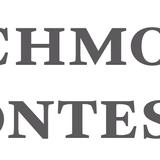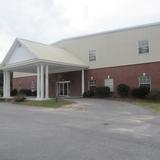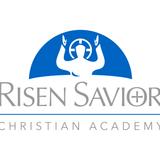Richmond Hill Montessori Preschool is a 3-star quality rated, Georgia state accredited childcare learning center.
Our program is nationally accredited through the National Association for the Education of Young Children (NAEYC).
We uphold to a much higher standard than the state of Georgia requires of all childcare centers.
Richmond Hill Montessori Preschool`s goal is to provide quality childcare in a positive learning environment.
To lovingly care for, nourish, and academically prepare your children as if they were our own.
We strive to exceed the expectations of our families through our quality services.
RHM promotes a safe, comfortable, stimulating, fun, and educational environment while following a structured daily plan that includes learning through play.
Quick Stats (2025)
- School Type: Montessori School
- Grades: Nursery/Preschool
- Average class size: 18 students
- Application Deadline: None / Rolling
- Source: Verified school update
School Overview
School Type
Grades Offered
Grades Nursery/Preschool
School Calendar
Student Body
Total Students
n/a
Student Body Type
Co-ed
Academics and Faculty
Total Classroom Teachers
48 teachers
Average Class Size
18 students
Classroom Dress Code
Casual
Tuition and Acceptance Rate
Admission Deadline
None / Rolling
Tuition Notes
$12,300 - $14,340
School Notes
We use the Montessori method of education at our school.
The Montessori Method of education is basically a unique approach to learning; it is the fundamental belief that a child learns best within a social environment which supports and respects each individual`s unique development. Rather than "teaching" the child ideas, a classroom is designed to stimulate the child`s interest and help their understanding and learning capacities - with little or no adult intervention. It uses the "whole child" approach to learning.
Montessori theory is based on these concepts:
-Children are respected as individuals who are different from one another.
-Children create themselves through purposeful activity and opportunity play.
-The most important learning occurs from birth to age six
-Children are sensitive and have the mental ability to absorb and learn from the environment, which includes people as well as materials.
Student-Teacher Ratio:
The Montessori Method of education is basically a unique approach to learning; it is the fundamental belief that a child learns best within a social environment which supports and respects each individual`s unique development. Rather than "teaching" the child ideas, a classroom is designed to stimulate the child`s interest and help their understanding and learning capacities - with little or no adult intervention. It uses the "whole child" approach to learning.
Montessori theory is based on these concepts:
-Children are respected as individuals who are different from one another.
-Children create themselves through purposeful activity and opportunity play.
-The most important learning occurs from birth to age six
-Children are sensitive and have the mental ability to absorb and learn from the environment, which includes people as well as materials.
Student-Teacher Ratio:
- Infants: 1:6
- Toddler: 1:8
- Two-Year-Old: 1:10
- Three-Year-Old: 1:15
- Pre K: 1:18
- After School: 1:25
Source: Verified school update
Frequently Asked Questions
When is the application deadline for Richmond Hill Montessori Preschool?
The application deadline for Richmond Hill Montessori Preschool is rolling (applications are reviewed as they are received year-round).
School Reviews
Endorse Richmond Hill Montessori Preschool. Endorsements should be a few sentences in length. Please include any comments on:
- Quality of academic programs, teachers, and facilities
- Availability of music, art, sports and other extracurricular activities
- Academic or athletic awards
Recent Articles

A Parent's Guide To Understanding High School Teaching Methods
This comprehensive guide helps parents navigate the various teaching methods used in today's high school classrooms. By understanding these approaches, you'll be better equipped to support your teen's learning journey, communicate effectively with teachers, and create a complementary learning environment at home.

February 08, 2025
Social Emotional Learning: Education's Hidden SymphonyA musician's perspective on Social Emotional Learning reveals how this educational framework orchestrates success through five essential emotional competencies.

January 24, 2025
A Roadmap For Starting A Private SchoolUse this roadmap as a set of talking points with your trusted mentors and professionals to start the private school of your dreams. You're not alone. Over the years, hundreds of folks like you have had the same dream. From Quintilian to Maria Montessori to Lucy Madeira Wing, visionary educators have established schools to teach according to their beliefs and methodologies.























